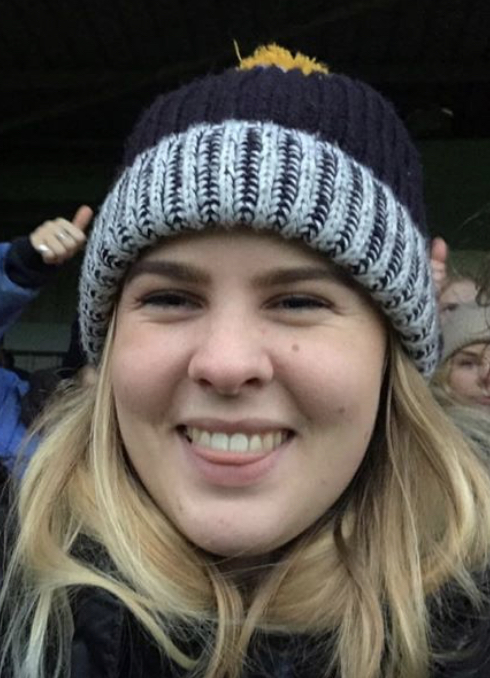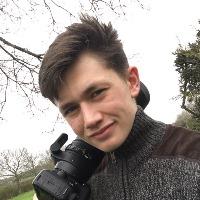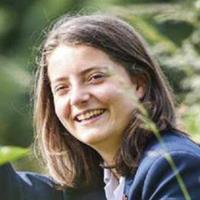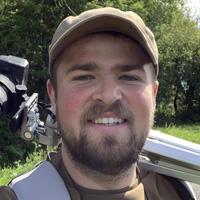Amy Hall
Amy is 22 and entering her final year studying for her MSci Zoology degree with the University of Exeter.
After studying osprey migration for her dissertation she is looking forward to turning to insect migration for her masters. Following her studies Amy hopes to pursue a career in science communication, and expand on her videography skills. You can check out her work so far on her YouTube channel at Amy Hall Wildlife!

Posts
-
Read More...
If you consume any type of media, be it social or broadcast television, you will be aware of the presence of an unusual Arctic visitor in British waters. For the last few months, a juvenile male walrus known now as Wally has been enjoying the delights of Tenby, touring along the west European coast and is currently holidaying around the Isles of Scilly.
Although it has been great to see such charismatic megafauna around our coastline, one must ask why a creature evolved for life in the Arctic …
-
Read More...
February is a fantastic and exciting time of year for nature, as we start to say goodbye to the short winter days and look forward to a fresh beginning.
This perhaps means more in 2021 after a long winter trapped in our homes under a barrage of gloomy news of unprecedented times. As the daffodils and snowdrops poke through, birdsong fills the tree once again, amphibians clamber back into icy ponds and sunsets creep in later and later - bliss. Although we may not yet have a taste of full …
-
Read More...
We are all familiar with the feral pigeon, but have you ever stopped and taken a closer look? These birds have incredible abilities far beyond human abilities, which have made them global navigators and carriers of messages.
-
Read More...
Dolphins are certainly a fan favourite of the animal kingdom - incredible intelligence and beautiful form make them seem almost magical. When you spot dolphins from a boat you may hear a series of whistles and clicks, as they 'chat' amongst themselves!
-
Read More...
Feathers are VERY important for birds, and the key to their health is a small nubbin-like gland at the bottom of the bird's back. Introducing... the uropygial gland!
-
Read More...
In episode five of 60 Second Zoology we get up close and personal with the sea anemone and their specialised stinging cells know as nematocysts
-
Read More...
In episode five of 60 Second Zoology we take a look at the amazing vision of the dragonfly and how it helps to make it an efficient predator
-
Read More...
In episode three of 60 Second Zoology we take a look at the water vascular system of the starfish and marvel at the internal hydraulics that give life to these echinoderms
-
Read More...
In episode two of 60 Second Zoology I investigate colouration in seabirds and why it can work to their advantage.
-
Read More...
In this 60 second video I am going to talk about the avian respiratory system and the technique of throat singing.
-
Read More...
It has been a few months since the Young Ambassador team as we know it today came together, and despite the challenges posed by a global pandemic, the team is thriving.
In June I became a Trustee on the board with the Cameron Bespolka Trust, a role in which I am working closely with the Young Ambassador team. The Young Ambassador role has been one which I have, and still do, hold immense pride in. It is an incredible outlet for young conservationists to share their passions and knowledge on a …
-
Read More...
Ornithology is an ancient practise, reflecting a long held fascination in the avian aspect of our natural world. Look at early art from almost any culture, and there will be a depiction of a bird, or several. The winged wonders of the world, it is easy to see why early people were so fascinated with their behaviour and appearance. Imagine we don’t have our modern comprehension of where birds go when they migrate, or how some species achieve incredible architectural feats (like bowerbirds …
-
Read More...
One of my wildlife highlights of the summer is actually something that draws me out after the long sunny days, as it can only be appreciated after dark.
Of course, I am talking about glow worms (Lampyris noctiluca) which I have been enjoying for quite a few years now. In the evenings of June and July, limestone rich grasslands (and other suitable habitats) can appear to sparkle as you walk through.
The bioluminescent glow, produced by a chemical reaction between luciferin and oxygen, is …
-
Read More...
The HOS and Cameron Bespolka Trust Young Birder's Camp 2018. Special thanks to Wild New Forest for organising the field work!!
Read more about a great weekend here
-
Read More...
Winter in the UK brings with it some interesting migrant species, particularly the influx of Hawfinches earlier on in the winter, however my highlight of the winter in Cornwall was the increase in the numbers of Firecrests on campus.
These gorgeous little birds are very similar to Goldcrests, but have much more vibrant and impressive plumage. The species name in their scientific binomial (Regulus ignicapillus) is derived from the words fire (ignis) and hair (capillus) which becomes evident …
-
Read More...
The British Birdwatching Fair is a highlight of the year for my local reserve, Rutland Water, as it hosts thousands of visitors from all over the world to share in their passion for birds.
I have been fortunate to attend the fair quite a few times due to it being in my home county, and every year I revel in the colourful and lively event and all that it has to offer.
In the past few years I have attended the fair as a volunteer, taking on various roles to help the weekend run as smoothly as …
-
Read More...
Almost a fortnight ago, my Twitter feed lit up with photos and reports of the white stork which had been spotted at Rutland Water, my local reserve. This was super exciting being the second record for the reserve, and although I missed it I wanted to find out a bit more about this species which has a history in the UK, as well as some interesting folklore here and around the world.
The white stork (Ciconia ciconia) is now extinct from Britain due to persecution (as a symbol of Christianity), …
-
Read More...
After mock exams I have been feeling rather deflated and lacking in inspiration, however whilst reflecting on my week I thought about how I could make exams more bearable. With real exams looming in the future, and university coming over the horizon in September (yay!) I really need the motivation to complete my exams and achieve my grades. Where better to find inspiration than the everyday wildlife which we see regularly?
I started my quest for knowledge with birds, and particularly their …





